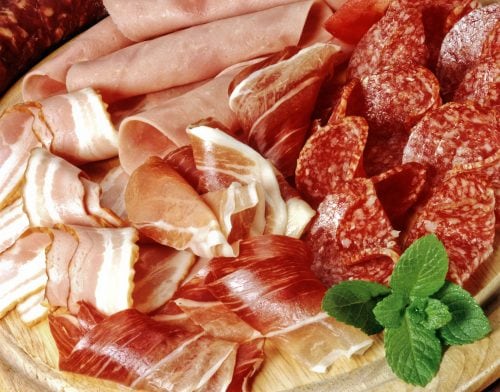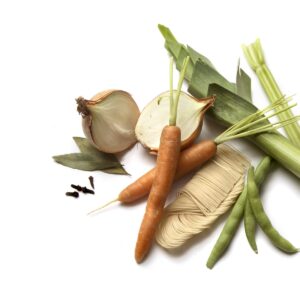
What are the links between processed meats such as ham and bacon and cancer? Senior nutritionist Rose Carr investigates.
Should ham sandwiches be off the menu?
It's hard to say, at this stage, without relevant research. Given what we do know, our approach is to be sensible: a little lean ham or bacon here and there is unlikely to be a problem – just don't go overboard. Remember to choose lower fat products and remove visible fat (see tip box, below).
What the science says
Higher intakes of both red meat and processed meats have been linked to a higher risk of bowel cancer. 'Processed meat' means meats preserved by smoking, curing or salting, or by adding preservatives. This includes ham, bacon, smoked chicken, pastrami, corned beef and salami, and some sausages such as chorizo and frankfurters. The association with cancer risk is higher for processed meats than for red meat. The World Cancer Research Fund (WCRF) has issued recommendations based on these findings and says we should eat 'little if any' processed meat. But is this advice relevant for New Zealand? Much of the research is from Europe where they tend to eat different types, and more of it. Our average consumption of processed meat is 23g a day, whereas people in the Netherlands, Sweden and Germany consume two to three times that.
What local research says
Professor Lynn Ferguson, head of nutrition at the University of Auckland, reviewed the research so far and she says it may not be the meat itself that poses a risk, but rather a high fat intake and the cooking or processing method used.
What's in processed meat that's so bad?
- Processed meats can be very high in fat, and a high-fat diet promotes cancer through higher body weight and insulin resistance.
- When meat is cooked at high temperatures – especially grilling, frying or barbecuing to 'well done' – it produces heterocyclic amines (HCAs) and polycyclic aromatic hydrocarbons (PAHs) both of which are carcinogenic. PAHs may also be especially prevalent in processed meats.
- High amounts of N-Nitroso compounds (NOCs) are thought to be carcinogenic. These are found in some smoked foods but are also a product of our metabolism after eating red and processed meats. Haem iron – found in red meat – promotes NOC formation and may explain why red and not white meat has been associated with some cancers.
How to eat ham and bacon
- Don't eat processed meat every day. Think of it as an occasional food.
- Include foods like citrus fruit or juice with your meat meals, as vitamin C appears to reduce NOC production.
- Choose lower-fat products and remove visible fat from bacon and ham.
- Look for 'nitrite-free' products where possible.
- Salami can be 50 per cent fat, so choose lower-fat options and keep your intake of this to a minimum.
- For the best protection against cancer, include plenty of anti-carcinogens in your diet – eat a variety of vegetables and fruit, high-fibre cereals and legumes. Combine this healthy eating with regular physical activity to promote a healthy body weight.
www.healthyfood.com











